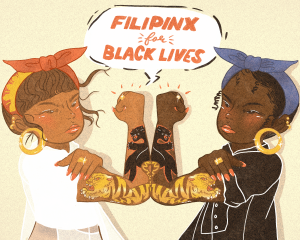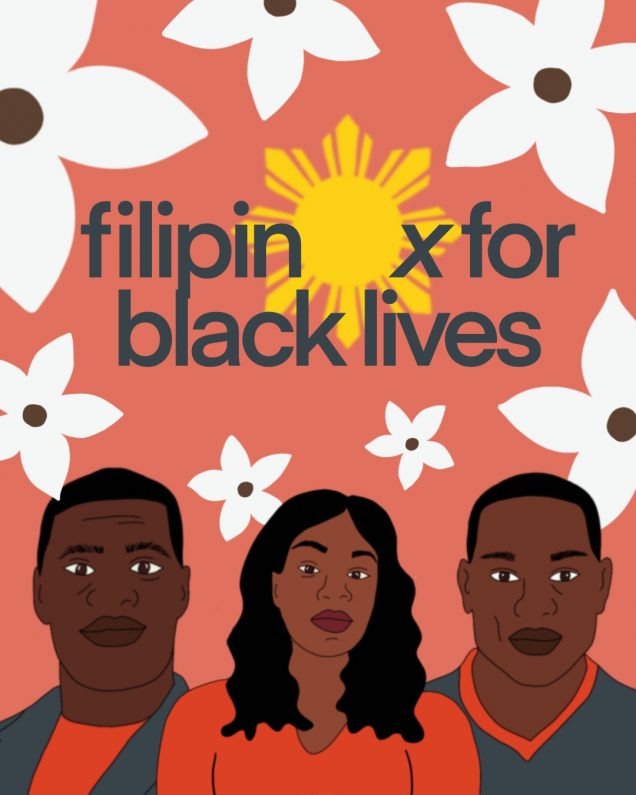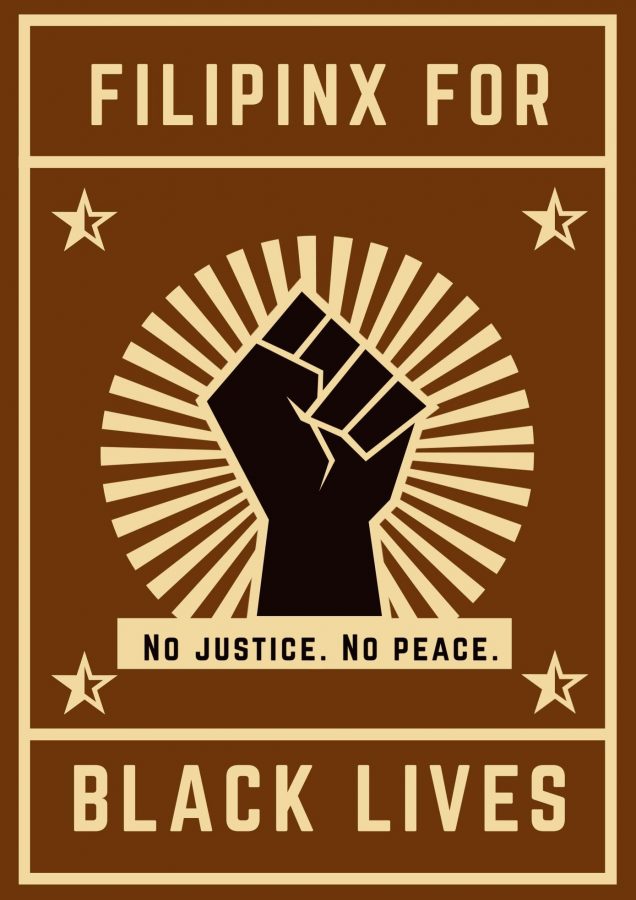Filipinx for #BlackLivesMatter: Fighting Anti-Blackness in Our Own Community
Filipinx for #BlackLivesMatter: Fighting Anti-Blackness in Our Own Community

Stephanie Acedillo, @xstephyyx
By Justine Abigail Yu
June marks Filipino Heritage Month here in Canada and I want to honour our community by combatting the anti-Blackness that is so pervasive in it, that is hurting Black people and each and every single one of us.
I ask you to honour our community by having these really critical conversations about race and injustice with those who are closest to us, those with whom it is often the most difficult to have these conversations with — our Nanays and Tatays, Titas and Titos, Lolos and Lolas.
We must remember that the revolution starts at home.
What Anti-Blackness Looks Like in Our Community
If you’re Filipinx and you’re reading this wondering what I mean, then let me count the ways.
You know how your parents were always trying to get you out of the sun so that “hindi ka umitim”? So you don’t “become Black”? Yeah, that’s anti-Black.
You know how your Titas and Titos gossip about so-and-so’s boyfriend being “itim” and how that’s no good? “Puti na lang sana,” they might have probably said. “She should’ve found someone white.” Yeah, that’s anti-Black.
You know how when you go back home to the Philippines and you see all of the whitening creams lined up at the grocery store and advertised in giant billboards or cute commercials? Yeah, that’s anti-Black.
You know how you and your cousins are obsessed with basketball and hip hop culture and speak like your favourite rapper and maybe even drop the N-word here and there, but haven’t once spoken up about or stood for #BlackLivesMatter? Yeah, that’s anti-Black.

@passionarawaraw
All of these examples are what we call the colonial mentality. This is called upholding white supremacy.
As a people colonized first by the Spaniards for 333 years and then the Americans for 48 years, we suffer from a long and hard case of the colonial mentality — that is, the thinking (often without even realizing it) that our colonizers, a.k.a white people, are superior to us and that we should aspire to their whiteness. Hence, our people’s rejection of anything close to being Black.
It is going to take a long time for us to unlearn these behaviours and this thinking but we need to start doing the work now. We need to break free from this line of thinking that oppresses not just Black people, but each and every single one of us. And it is our responsibility to support each other, our own family and community of loved ones, and call each other into these tough conversations around racial injustice.
Filipinos are the “Blacks of Asia”
You must have heard this refrain to describe our community before and I want to know, what does this mean to you? What does it mean when people say this about us?
Many of us in the Filipinx community have latched on to Black culture as part of our identities, largely because it is the closest to ourselves that we could find in mainstream media. Black culture was the only thing we saw that wasn’t white. As a community that desperately lacked and continues to lack representation, Black culture was and is the closest thing we have that resembles our own.

Kalaya’an Mendoza,
@kalamendoza
Think about how we cling to pieces of Black culture, especially around music and dance and sports. What music predominantly plays at our fam jams? Soul. Funk. Hip hop. R&B. What do we all gather around to watch as a family in the evenings? Basketball. When those of us from the younger generation speak, what words come out of our mouths and what affectations do we take on? African-American Vernacular English (AAVE) or, as we often just call it, “slang”. Who did we take our fashion cues from growing up and to this day? Black musicians, entertainers, and athletes.
I’m generalizing a lot here for the sake of brevity, but you know what I’m getting at. As a community, we pick and choose the parts of Black culture we like, the parts that we deem to be “cool”. The parts that elevate our own social status and boost our own appearances. But we actively dismiss all other parts of the Black experience that do not serve us.
We have enjoyed the sweet fruits of Black excellence and labour but we have rarely, if ever, stood up for the rights and lives of Black people themselves.
What does it mean for us to not take action against the brutalization and murder of the very people we are being likened to? The very people whose culture has informed so much of our understanding of ourselves?
But ultimately, what does it mean for us to not take action against the brutalization and murder of people?
Read Justine Abigail Yu’s blog: https://medium.com/@justineabigail/filipinx-for-blacklivesmatter-fighting-anti-blackness-in-our-own-community-a78565bca421
Comments (0)